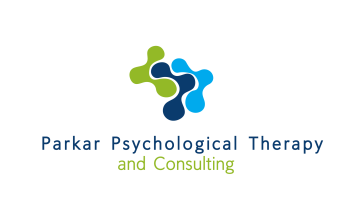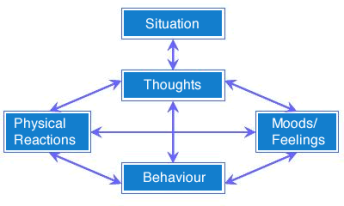What is Cognitive Behaviour Therapy? And more importantly, how can it help you?
CBT, or Cognitive Behaviour Therapy, is a talking therapy. It has been proved to help treat a wide range of emotional and physical health conditions in adults, young people and children. CBT looks at how we think about a situation and how this affects the way we act. In turn our actions can affect how we think and feel.The therapist and client work together in changing the client’s behaviours, or their thinking patterns, or both of these.
There is a great deal of research evidence to show that CBT works effectively in treating depression. This research has been carefully reviewed by the National Institute for Health and Care Excellence (NICE). NICE provides independent, evidence-based guidance for the NHS on the most effective ways to treat disease and ill health. CBT is recommended by NICE for the treatment of anxiety disorders.
NICE recommends CBT in the treatment of the following conditions:
-
anxiety disorders (including panic attacks and post-traumatic stress disorder)
-
depression
-
obsessive compulsive disorder
-
schizophrenia and psychosis
-
bipolar disorder
There is also good evidence that CBT is helpful in treating many other conditions, including:
-
chronic fatigue
-
behavioural difficulties in children
-
anxiety disorders in children
-
chronic pain
-
physical symptoms without a medical diagnosis
-
sleep difficulties
-
anger management
CBT can be used if you are on medication which has been prescribed by your GP. You can also use CBT on its own. This will depend on the difficulty you want help with.
CBT can be offered in individual sessions with a therapist or as part of a group. The number of CBT sessions you need depends on the difficulty you need help with. Often this will be between five and 20 weekly sessions lasting between 30 and 60 minutes each. CBT is mainly concerned with how you think and act now, instead of looking at and getting help with difficulties in your past.
You and your therapist will discuss your specific difficulties and set goals for you to achieve. CBT is not a quick fix. It involves hard work during and between sessions. Your therapist will not tell you what to do. Instead they will help you decide what difficulties you want to work on in order to help you improve your situation. Your therapist will be able to advise you on how to continue using CBT techniques in your daily life after your treatment ends.
CBT is available in a wide range of settings, as well as hospitals or clinics. It is sometimes provided in the form of written or computer-based packages. This may be combined with flexible telephone or face-to-face appointments to check progress and help overcome any barriers to putting into practice what you have learned. This way of delivering CBT has made it more accessible to people with busy lives, and has also reduced delays in getting help.
If you would like to find out more about CBT, please see the document below:



